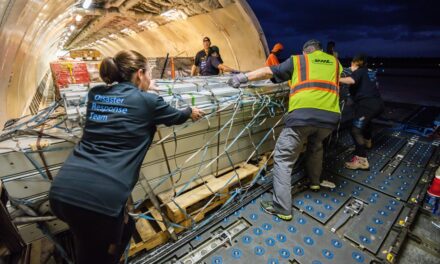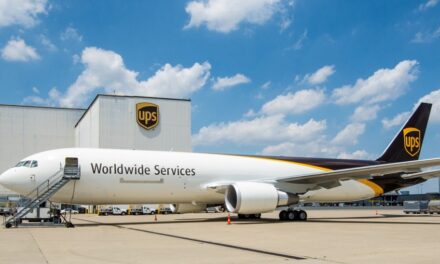
UPS cancels superjumbo
When UPS abruptly announced just a week after striking a new agreement with Airbus that it would cancel its orders for 10 A380 freighters, experts expected a very quick response across the market for aircraft.
"The pricing of 747-8 freighters just went up," cracked one aircraft industry analyst.
In fact, UPS's withdrawal as the last customer for the misbegotten Airbus freighter was all but inevitable for some time, but the breakup between the aircraft manufacturer and the world's second-largest cargo airline marked an unusually messy end to a freighter purchase agreement.
The muddy ending was rivaled only by the A380 program itself, a project that has fallen far behind schedule.
Passenger airlines have been clamoring for penalty payments and freighter customers dropped their orders as Airbus has undergone a massive management overhaul in the aftermath.
Freighter cancellations by FedEx Express, which became the first and the first out on the Airbus sales sheet for A380 freighters, Emirates and International Lease Finance Corp. had left UPS as the only cargo customer for the massive new aircraft.
UPS and Airbus seemingly had set the stage in late February for an amicable parting. They announced a redrawn purchase agreement that allowed either side to end the sale under a preset timetable.
But on Feb. 28, Airbus disclosed a restructuring plan in which it will lay off 10,000 employees. And a day later Airbus pulled its workers off the freighter assembly line to work on passenger versions of the plane, an action UPS officials did not learn about directly from the manufacturer.
"We initially learned of the diversion of resources from the freighter program to the passenger program through news media reports," said UPS spokesman Norman Black.
According to one industry official familiar with UPS operations who spoke on condition of anonymity, "The response in the company was complete and utter shock" at learning about about Airbus' action through media reports.
The anger was evident in a terse statement that belied stakes worth some USD2 billion in which UPS said the "final cancellation decision will be formally presented to Airbus on the first date specified under an agreement reached last week that gives either party the right to terminate the order."
UPS insisted it was still studying the aircraft and its production schedule, although it appeared Airbus did not relish occupying its factory line with just 10 planes for a single customer.
"Based on our previous discussions, we had felt that 2012 was a reasonable estimate of when Airbus could supply this plane," said David Abney, UPS's COO and president of UPS Airlines.
"We no longer are confident that Airbus can adhere to that schedule."
UPS now is focused on adding the capacity the company believes it will need in the international arena in coming years.
Some of that capacity will come through the 27 767-300 extended-range freighters UPS ordered Feb. 5 from Boeing, but the super-sized A380 was supposed to fill bigger, longer routes and UPS likely will look to Boeing to fill that need as well.
FedEx, the onetime A380 freighter launch customer, ordered 15 777 freighters from Boeing on dropping its A380 orders and UPS will probably take a similar step. The twin-engine 777 would bring UPS more flexibility in its choice of routes while the larger 747-8 would offer greater range and payload, but analysts see it as better suited for heavy freight.
Given their breakup, Airbus will probably hear about the UPS choice of aircraft in newspapers, not from the company. But Airbus insists its A380 freighter line is merely idled, not shut for good.
"While the A380F remains a long-term, important member of the A380 family, in the near term the company now will focus its A380 program resources on the passenger versions of the aircraft," said Airbus spokeswoman Mary Anne Greczyn.
The plane eventually may become a freighter, says one expert, but not the current version.
"They'll launch it based on the -900 model, a stretched version of the plane," said Edwin Laird, head of the Seattle-based Air Cargo Management Group. "That is if Airbus sticks with the A380. If the airplane is a success in the passenger configuration, they will carry it forward to a stretch version."
Laird said the increased thrust and heavier structure of a next-generation A380 would be better suited to freight hauling than the current passenger model. But, "If the A380 is not a success as a passenger plane, there's a good chance the values will plummet and it will be available for a freighter," he said.













